City Council Hearing, February 25, 2014
The City Council’s higher education committee held its first hearing on CUNY’s controversial Pathways curriculum. Faculty members warned that the narrower, administration-imposed curriculum is damaging the quality of students’ education.
Saavik Ford, Professor of Astronomy, Borough of Manhattan Community College
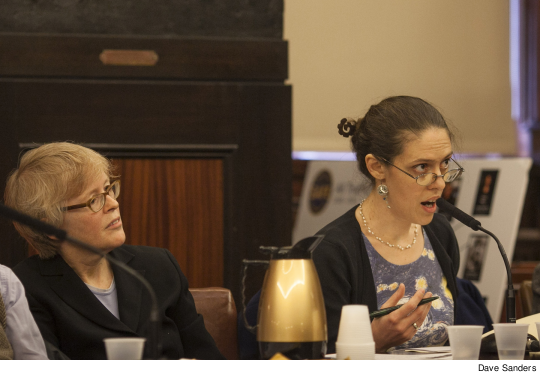
“At BMCC, pre-Pathways, our liberal arts majors took two science courses, each with a rigorous lab, each for five hours per week. Now they take two science courses, only one with a lab, each meeting for only three hours per week. Our students deserve more than three fifths of a science class.” (Full testimony)
Susan Jacobowitz, Professor of English, Queensborough Community College
“Pathways threatens to gut the CUNY undergraduate degree in order to enhance graduation rates. This proud institution, which has served so many so well for so many years, is in danger of becoming the symbol of the ‘pretty good’ or ‘good enough’ education.” (Full testimony)
Nivedita Majumdar, Professor of English, John Jay College
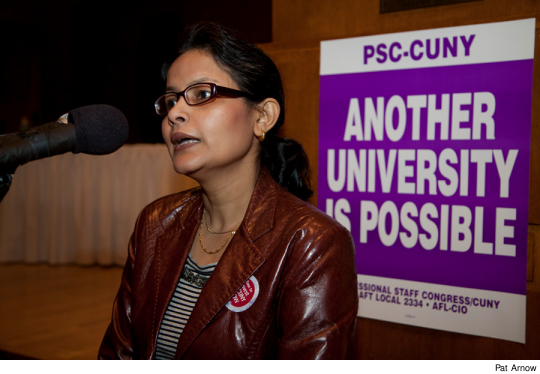
“[Pathways] means students could graduate with a bachelor’s degree without ever having taken a literature or a history course or without any training in a foreign language or reduced time in science labs. Our students are denied the intrinsic value of a good education.” (Full testimony)
Jonathan Natov, Professor of Mathematics, New York City College of Technology
“Under Pathways we face the challenge of having diluted degree requirements…Essentially the problem is that bachelor of science degrees can no longer specify courses in the common core. The result is that specified upper-level courses are replaced by lower-level unspecified courses… Surely the intention was not to lower the standards of a Bachelor of Science degree, but that is the result.” (Full testimony.)
CUNY Board of Trustees Hearing, June 18, 2012
Thirty CUNY faculty and staff presented testimony about problems with Pathways at a CUNY Board of Trustees borough hearing at Hostos Community College. Their testimony offered a varied and detailed analysis of how Pathways would hurt students and undermine the value of the CUNY degree.
Rex Butt, Interim Chair Department of Modern Languages, Bronx Community College
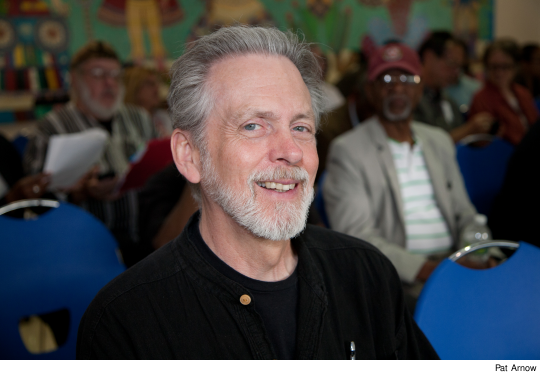
Last October’s draft from the CUNY Pathways Steering Committee did not mention foreign languages, and although the December revision acknowledged the need for the inclusion of foreign language study, Pathways’ structure suggests a tepid commitment to meeting that need…The Pathways process has not allowed for the careful reflection and deliberation that significant curricular change deserves. Instead, it insists that we dash forward to meet deadlines that were set without our input. Full testimony.
Janice Cline and Charles Coleman, Cultural Diversity Program, York College
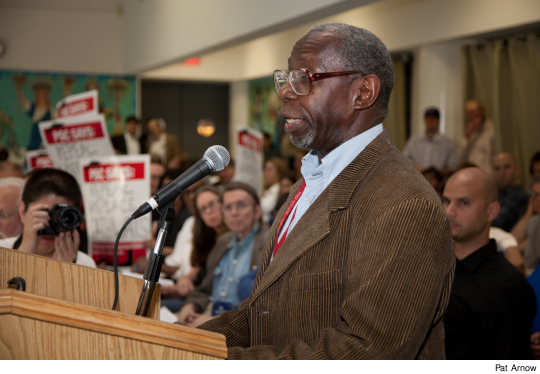
[Our highly rated Understanding Cultural Diversity course] will be one of many Gen Ed courses in the “Flexible Core” from which students can choose. For most freshmen, the unique, first-hand cultural understanding that York has provided our diverse student body will be lost. Prejudices will go unopposed—and likely make for a recurrence of tensions that led to the adoption of the course many years ago. Full testimony.
Arthurine DeSola, Secretary, Professional Staff Congress
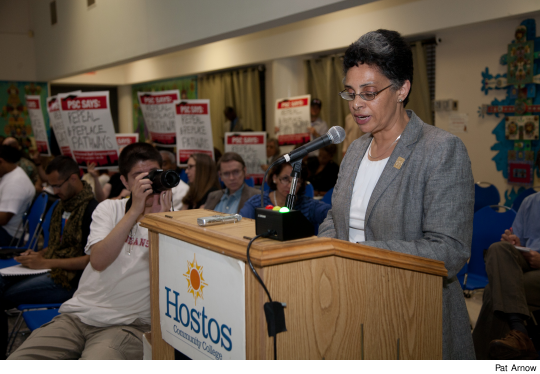
I must tell you that a new General Education Framework is not the most important thing we need to facilitate student transfer throughout CUNY. What we need is resources—money to hire more academic advisers and more counselors, money to improve our technology and information sharing systems, and money to keep our class sizes and advisement caseloads down to a level that allows for real mentorship and guidance for students. Full testimony.
Alan Feigenberg, Professor of Architecture, City College
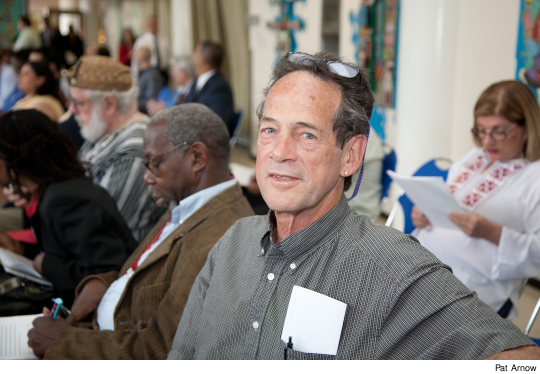
[Pathways’] top-down imposition vividly contrasts with the internationally acknowledged leader in education, Finland… [Where] teachers are seen as professionals and educator autonomy is basic…Pathways is an attempt to pull us in just the opposite direction. It is an affront to all of us as critical educators, and to our students who are treated as faceless quantifiable statistics. Full testimony.
Francisco Fernandez, Chair of Natural Sciences Department, Hostos Community College
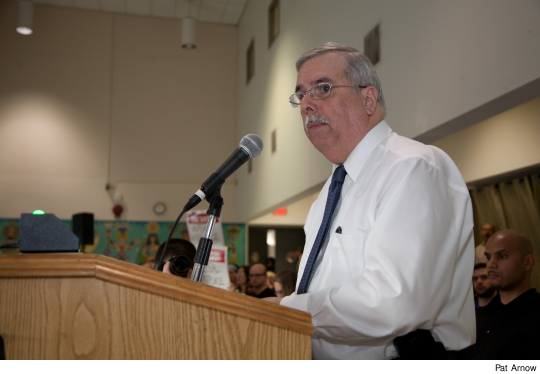
Pathways decrease the amount of contact hours required for Liberal Arts students in our college, from 8 credits/11 contact hours to 6 credits/6 contact hours. This is a decrease of 45% in the amount of contact hours dedicated to sciences. Development of laboratory skills will be affected in particular. Full testimony.
Bill Ferns, Professor of Computer Information Systems, Zicklin School of Business
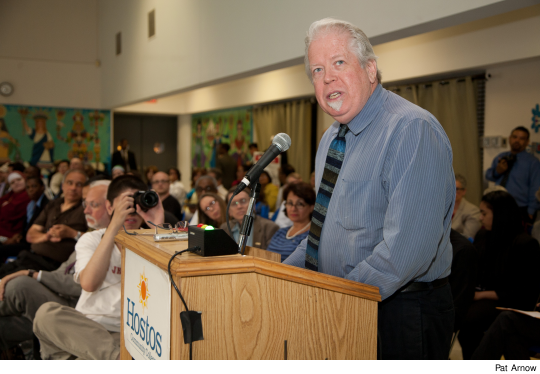
The Pathways initiative…is going to leave many of the thorny operational issues of student transfer unsolved. [At Baruch], the absence of timely transcript information leads to many delayed graduations—probably more delayed graduations than the current rigorous curricula that Pathways seeks to reduce. Solutions to these very real stumbling blocks require difficult organizational and operational work, and not just simplistic, sweeping mandates. Full testimony.
K.E. Saavik Ford, Associate Professor of Astronomy, BMCC
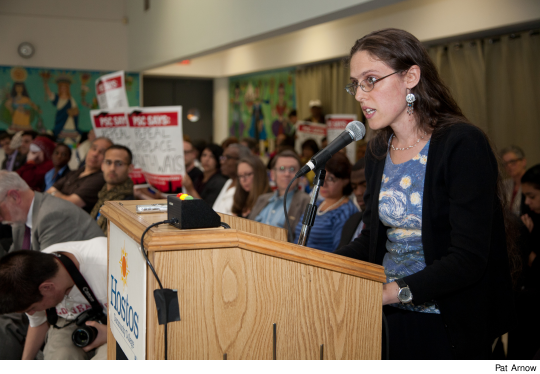
When I was tenured by this body, I assumed you wanted me to use my expertise on behalf of this university. But Pathways has ignored my expertise…You are asking us to invite national ridicule by shortening our courses at the expense of understanding… No adjustment can fix the fact that you did not properly consult your experts—the elected faculty bodies entrusted with curriculum decisions. So I am here, now… Our students deserve more than three-fifths of a science class. Full testimony.
Hollis F. Glaser, Academic Senate Chair, BMCC
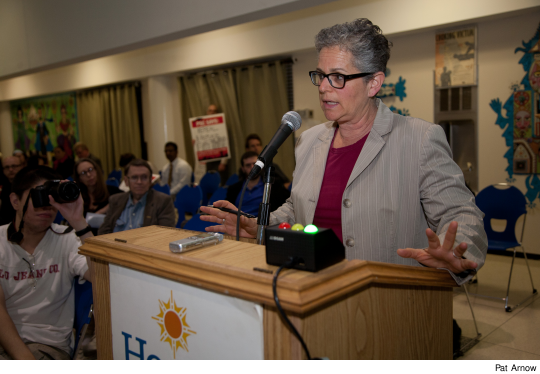
The Board took a core job (curriculum) away from its core workers (faculty)… you rushed the process… initiated this centralized process within a decentralized organization consisting of 18 autonomous colleges, within which, are multiple autonomous sub-groups (departments). So of course you have a flurry of resolutions, a petition with over 5000 signatures, and a lawsuit on your hands. It couldn’t go any other way. I’ll tell you how to get out of this mess and fix the transfer issues: Give this problem back to the faculty. Full testimony.
Stephen James, Assistant Professor of African American Studies, New York City College of Technology
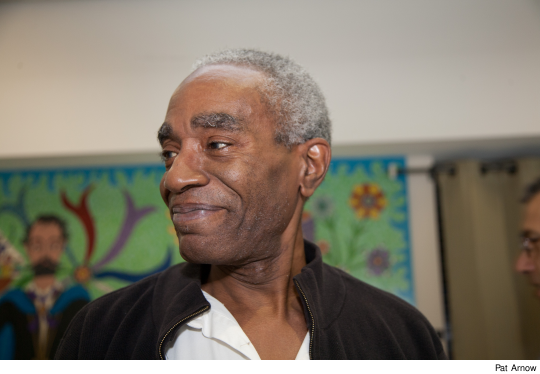
If the goal is to ensure that our students can transfer from one college to another, the Pathways initiative fails because from my perspective as a faculty member, there is a decided lack of clarity…Ultimately, it is relatively easy to place a course into a particular category, however vague, in order to complete a form. However, there is no assurance that there is any change in actual curricula or in the classroom. Full testimony.
Robert Kahn, College Senate Chair, LaGuardia Community College
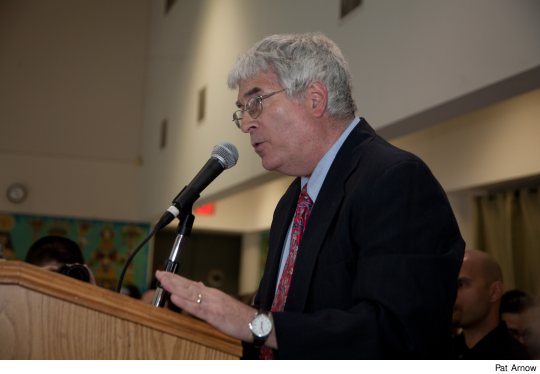
The Pathways proposal has already created a firestorm. If imposed, there will be additional problems during implementation. Your troubles have just begun, and yet the real problem of wasted credits will not be solved. Please solve the real problem and allow our 60-credit degree to transfer as the first two years of a CUNY education. We are one university. Full testimony.
Allison Kavey, Chair of History Department, John Jay College of Criminal Justice
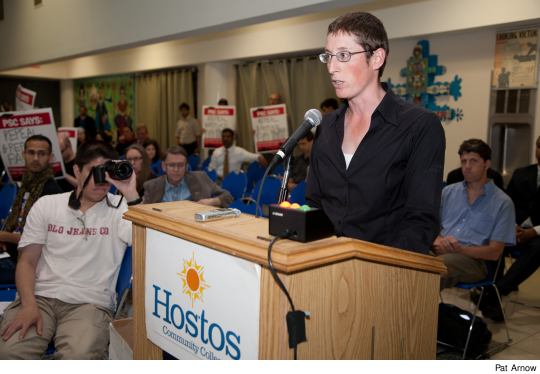
Current thinking in the field of General Education stresses the importance of a scaffolded model that focuses on a specific set of skills deemed critical for undergraduate success. These skills are introduced in the first year, then reinforced, refined, and tested for the rest of the students’ careers. Pathways, by allowing students to satisfy their General Education requirements all at the 100 and 200 level, ignores this critical piece of pedagogy. Full testimony.
Claudio Mazzatenta, Professor of Biology, Bronx Community College

If “scientia potentia est,” as said in Latin, or “knowledge is power,” then CUNY’s Pathways initiative positions itself at the antipodes…[Pathways]does not empower our students to be prepared for the challenge of a new world driven by global issues. On the contrary, our students will learn less and will…[earn] lower salaries because they [employers] will find CUNY graduates’ credentials less impressive than others. Full testimony.
Howard Meltzer, Chair, Department of Music and Art, BMCC
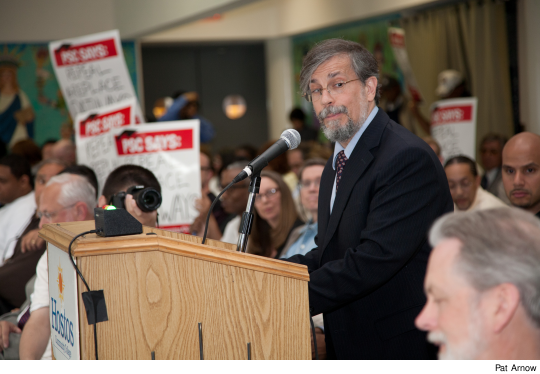
My departmental colleagues and I…are fitting our courses into one of the five categories in the Flexible Core – “Creative Expression.” It is a painful experience. [The] Creative Expressions outcomes…are empty generalizations—applicable to everything and nothing…To paraphrase Diane Ravitch, they contain “no content that students might analyze, debate or reflect on,” but merely enshrine narrowly Eurocentric and conventional notions. Full testimony.
Gerald Meyer, Emeritus Professor of History, Hostos Community College
Professor Meyer presented written testimony in the form of a Resolution on Reconsideration of Pathways that he drafted for the Hostos Community College Senate. The college senate lacked a quorum at their May 31 meeting, so the resolution is still pending. Read the resolution.
Kathleen Offenholley, Assistant Professor of Math, BMCC
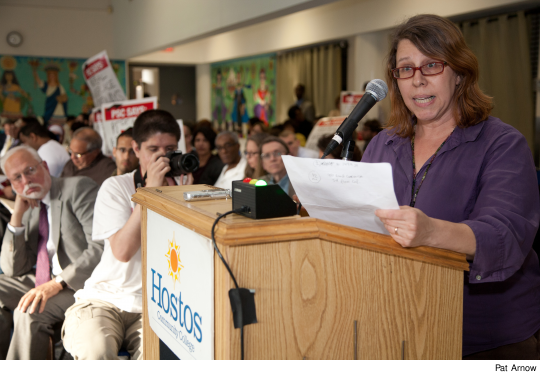
[Pathways’] unintended consequence: Less math for our students; fewer topics in the two core courses, and fewer students taking Statistics than ever before… At its root, I believe this has occurred because the essential nature of the community college is being disrespected. Full testimony.
Joachim Oppenheim, Lecturer, Kingsborough Community College
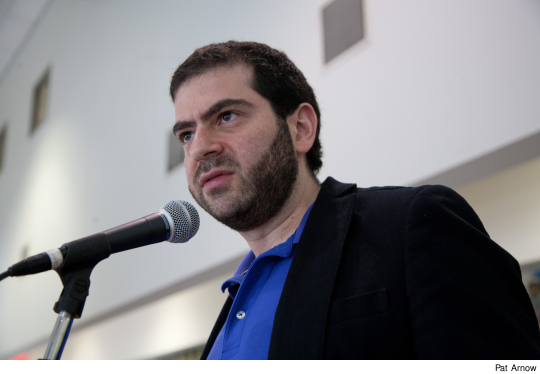
Students at the community college level need and expect guidance and encouragement in meeting the demands of college-level work My colleagues and I need every minute of the four hours of instruction time we currently have in order to teach elementary and intermediate-level foreign languages…If a Harvard or NYU student needs between 4 and 5 hours a week to learn a foreign language, then how can we demand that our students at CUNY do the same in 3 hours? Full testimony.
Sharon Persinger, Associate Professor of Mathematics and Computer Science, Bronx Community College
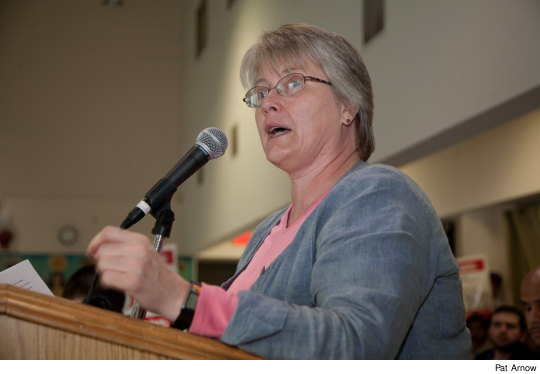
I’m a mathematician, yet I chose to explain my opposition to Pathways through the metaphor of commodity cheese. I understand the value of metaphors because I got an excellent general education, even though my degrees are in math and computer science…I want my students to experience that quality education, developed by practitioners of academic disciplines, true to the methodology of those disciplines…[they]deserve Asiago, and Brie, and Camembert, and Derby and more, not just commodity cheese. Full testimony.
Glenn Petersen, Professor of Anthropology, Baruch College
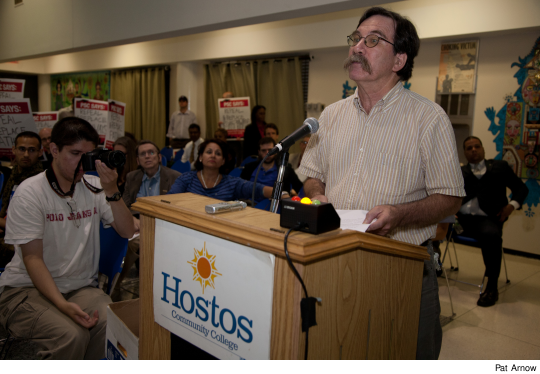
The Chancellery has insisted from the outset that the Pathways process is “faculty driven.” This suggests that it does not consider simply involving the faculty to be sufficient; rather, the Chancellery appears to maintain that if this process is to succeed it is imperative that the faculty believes in and supports it…Why is it, then, that with an overwhelming voice the CUNY faculty as a whole has expressed its opposition to nearly every facet of the process? Full testimony.
John Pittman, Associate Professor of Philosophy, John Jay College of Criminal Justice
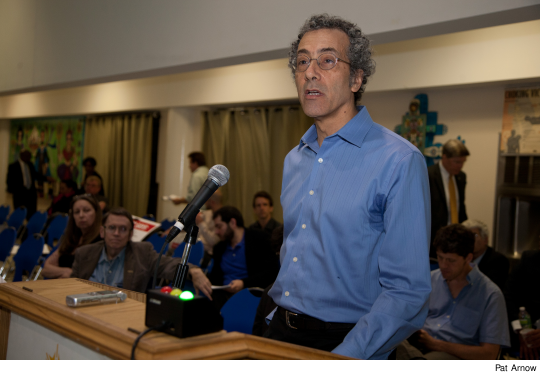
It’s not simply that the Common Core, even supplemented by the College Option, is too skimpy to do the job. The basic idea of the initiative—that instruction can somehow be improved, and learning enhanced, by identifying measurable outcomes and then structuring the development of curricula around these—is flawed. This approach seems like a higher ed version of “teaching to the test.” Full testimony.
Carl Schlachte, Adjunct Lecturer, Brooklyn College

If the Pathways changes are at all concerned with student graduation rates, core composition classes must be allowed to maintain a fourth contact hour, for the sake of the students’ performance…the fourth contact hour allows me to give personal attention to students who need help …Without it, I have no doubt that their abilities would suffer. Full testimony.
Brijrai Singh, Emeritus Professor of English, Hostos Community College
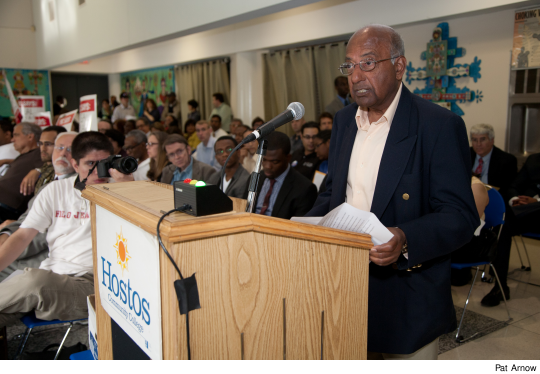
[Pathways], if implemented, it will encourage community college students to seek transfer after they complete the thirty mandated liberal arts credits… they will quit at the end of the first year of their A.A. program, even though for remedial and other reasons it may take them more than a year to reach there. And because the preponderant majority of community college students are liberal arts majors—this is certainly the case at Hostos—their mass migration before they finish their A.A. degrees, caused by Pathways, will result in the A.A. degree losing its meaning and integrity. Full testimony.
George D. Sussman, Professor of History, LaGuardia Community College
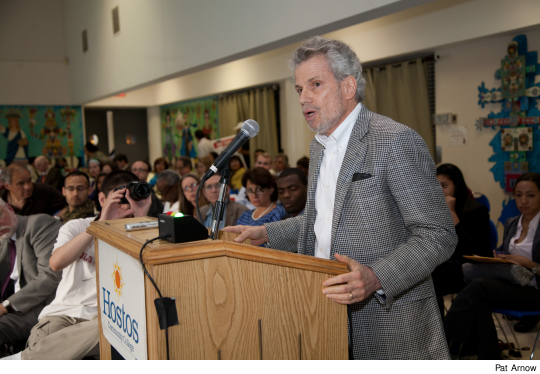
At LaGuardia Community College four different departments propose to offer 116 different courses in [the “World Cultures and Global Issues” Flexible Core area]…What Pathways tells the student is that academic disciplines, subject matter, or knowledge do not matter. What matters is something the proposal calls “learning outcomes,” which appear to be unverifiable skills…But education cannot separate skills from knowledge. Full testimony.
Margaret Tabb, Professor of English, John Jay College of Criminal Justice
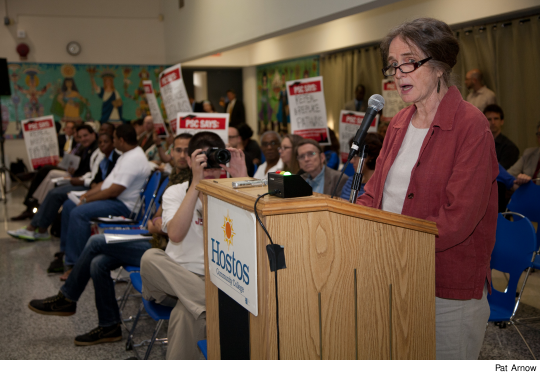
Our students come to CUNY from a variety of educational backgrounds. The majority are missing…intellectual skills and basic knowledge. It is our responsibility—as professors in a public university—to address this deficit. Unfortunately, Pathways vastly weakens our ability to do so. Full testimony.
Elaine Thompson, Adjunct Lecturer, Queensborough Community College
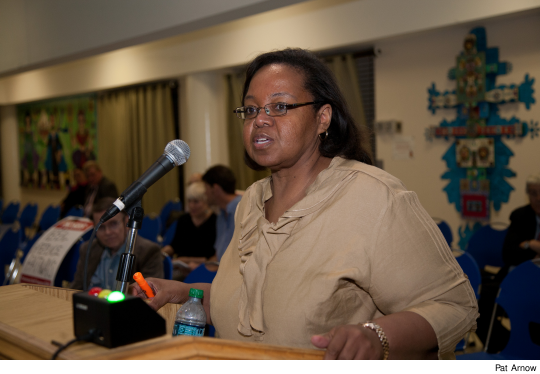
I fear that if speech is relegated to the Flexible Core, many students won’t enroll partially due to fear and also because they don’t realize how essential this skill is to their success. Given the competitiveness of this new economy, our students need every possible advantage as they move into their careers, and we will shortchange them by not including a communications requirement in the General Education core. Full testimony.
Julie Trachman, Professor of Natural Sciences, Hostos Community College
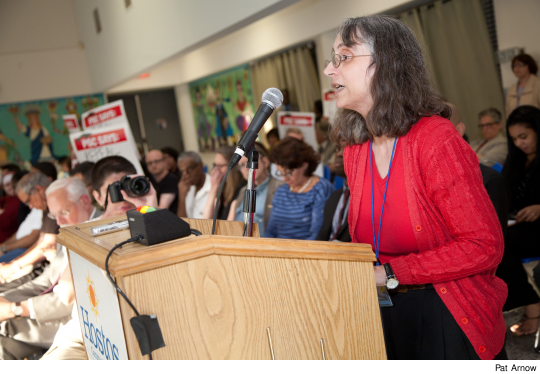
“[There is a] reason why the national standard for science courses includes a laboratory component that typically runs in parallel with the lecture. Without such a concurrent laboratory component…many more of our students will fail and will have to repeat the science courses…a 3 credit lecture course followed in a later semester by a required 3 credit laboratory course will not be an adequate solution for many of our students because the theoretical learning in the lecture will be uncoupled from the visual and kinesthetic learning that occurs in the laboratory.” Full testimony.

